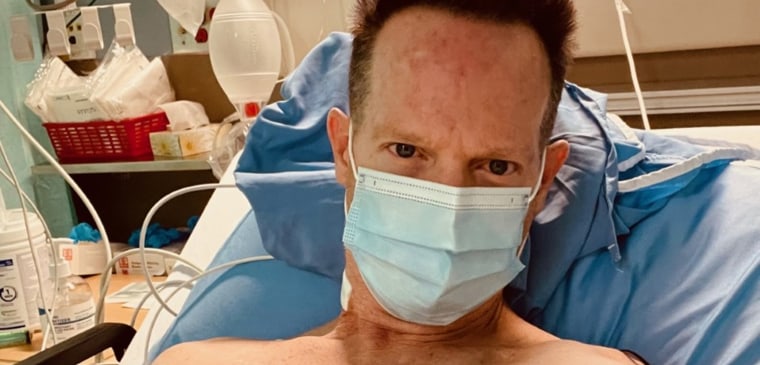Jason Gray-Stanford is an actor best known for his voice work as well as starring as Lt. Randy Disher in the hit TV show "Monk." He is also the recipient of a heart transplant. In honor of American Heart Month, he shared his experience of living with heart failure and his recent heart transplant surgery with TODAY.
My journey began at the end of a busy shoot in Vancouver in 2018, when I started feeling rundown, as if I had the flu. I thought I’d deal with it when I returned home to Los Angeles. But as I worsened, I worried I might develop pneumonia or bronchitis, so I visited the set doctor.
The doctor ordered an electrocardiogram and that's when I realized something was really wrong. He urged me to visit the emergency room because my heart was beating oddly.
While sitting in the hospital waiting room, I started feeling better, which is why I was so shocked by what the doctor said when he finally called me back: He wanted to admit me for more tests on my heart. I was stunned. I was young, exercised regularly and ate healthy foods. I couldn’t have heart problems. Days later, I learned the true nature of my condition: I was in heart failure.
I was young, exercised regularly and ate healthy foods. I couldn’t have heart problems.
Jason Gray-STanford
I then received a crash course in heart health. When doctors think about the heart’s function, they consider something called ejection fraction, which refers to how well your left ventricle pumps blood with each heartbeat, according to the Cleveland Clinic. Healthy hearts have an ejection fraction of 50% to 75% — mine was at 30%. I was floored. How could this be? I felt a little sick and tired but not nearly unwell enough to have something as serious as heart failure.
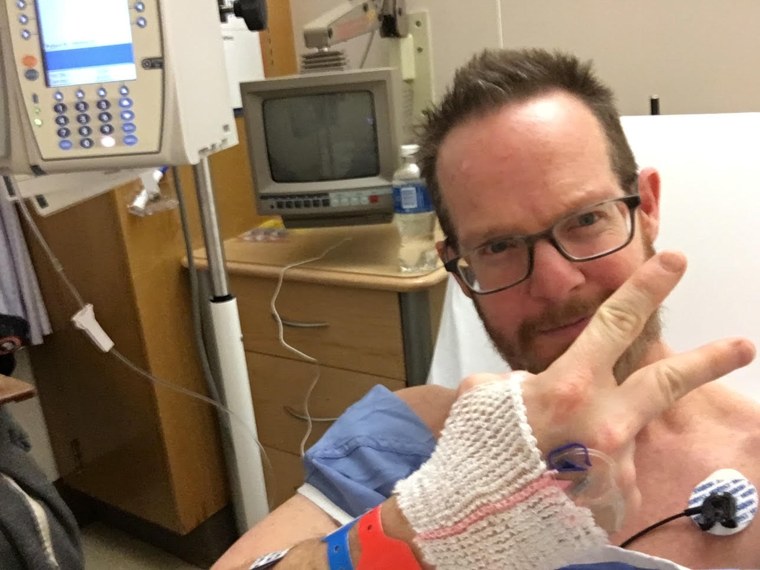
The scary news continued. Doctors also discovered a blood clot in my heart and said they worried about it traveling to my brain. They needed to give me blood thinners until it dissipated, which meant I needed to stay longer in Vancouver. Luckily, my family is there and I spent time with them as I convalesced.
When I finally returned to Los Angeles, doctors echoed what was said in Vancouver. I had stage 1 heart failure. I grappled with the diagnosis and also denied it. It felt impossible that I was so sick. But I started medications to help me live with heart failure. My heart became healthier and my ejection fraction even improved.
For the next two years, I enjoyed a mostly normal life. Sure, I took medications and visited doctors more often, but my health remained stable. I worked and enjoyed activities as I did prior to my diagnosis.
At the end of December 2019, I was visiting Vancouver again and went to a spin class. One moment I was pedaling with everyone else; the next I woke up on the floor with the entire class peering down at me. I had blacked out on the spin bike. I was terrified. How could I lose so much time? Why did I end up on the floor? Suddenly, I was being rushed to the hospital.
I had blacked out on the spin bike. I was terrified. How could I lose so much time? Why did I end up on the floor?
Jason Gray-STanford
The situation felt grave. Doctors wanted to give me a pacemaker to help my heart pump and a defibrillator to shock my heart back into rhythm if it became erratic again. It felt surreal. I thought if I stuck with healthy habits and took my medicine, I’d be better. I didn’t want a pacemaker or a defibrillator. Those were for old people. I wasn't even 50 yet. But the doctors explained that these devices would help me be healthy and active.
At the time, though, we had no idea how damaged my heart was. After I recovered from surgery, I tried working out, but I struggled. I couldn’t even take walks and felt winded going up the stairs. In February 2020, I returned to the hospital. This time my kidneys and liver were failing. My heart wasn’t able to pump enough blood to my entire body and some of my organs had suffered.
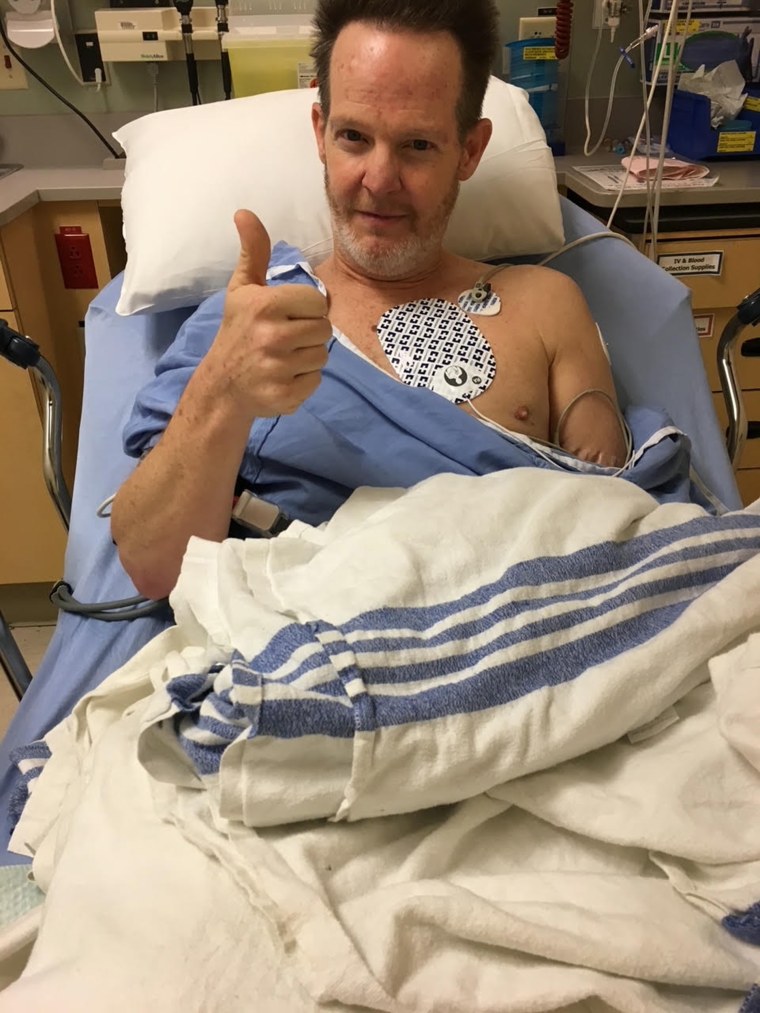
I retained so much water that I needed to take a diuretic to reduce the water in my body. Oddly I also felt incredibly thirsty and wanted to drink more, but that was the last thing I needed. While the hospital was able to help get the fluid out of me so I could return home, I wasn’t better. I normally walked my dog for a mile at a time. Soon we walked for half a mile. Then we walked around the block. Finally, we stopped walking altogether. When I slept, I’d wake gasping for breath.
At the end of November 2020, I landed back in the hospital, retaining fluid again. But I still felt hopeful that the proper cocktail of medicines could help me return to a normal life. Doctors gave me the strong medications in the hospital, but nothing worked. My kidneys were continuing to fail and doctors started fast-tracking my tests to see if I was a candidate for a heart transplant.
When I was in the hospital earlier in February, doctors had mentioned I might need a heart transplant, but I thought they meant I'd need it years later. Even as they were making sure I qualified for a transplant, I was hoping I could return home to get better. Finally they gave me the honest assessment: I was on all the best medications they had and they weren't working. My only option was a heart transplant.
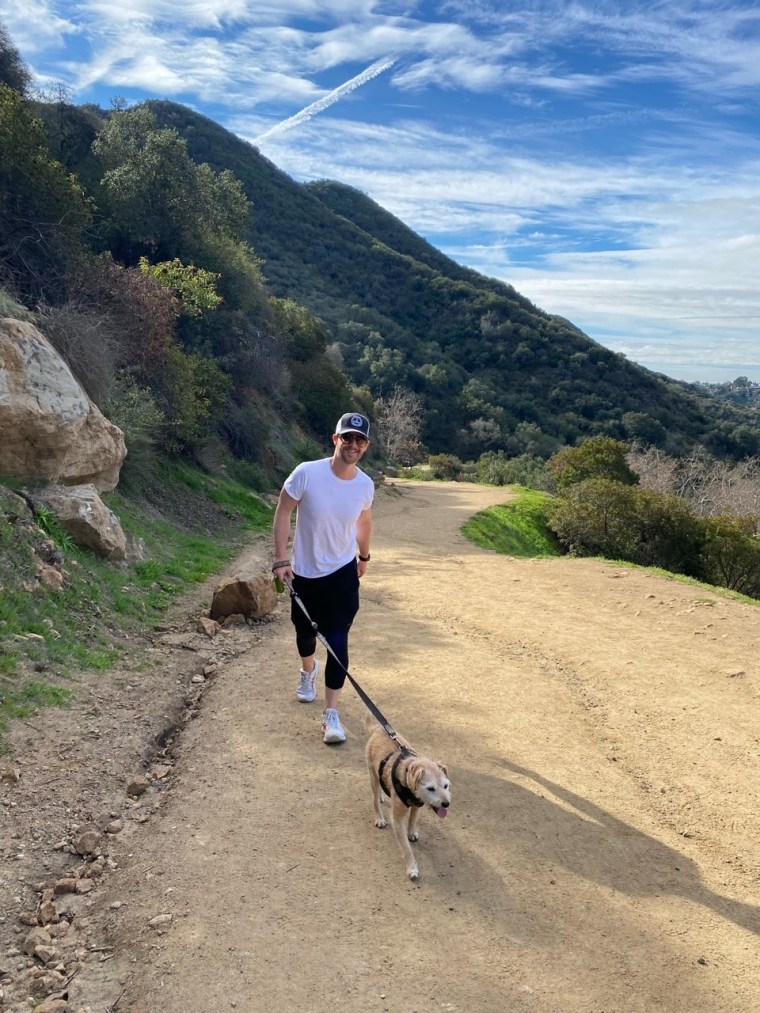
This was a lot to process. In my mind, I still wasn’t that sick, even though I knew I was struggling. But if I went home and my kidneys failed, I would no longer qualify for a heart transplant. People have to have a certain level of health to receive a transplant and having multiple organs failing might make me too unhealthy. They told me I could think about being on the transplant list for a few days. I didn’t want to make the decision lightly.
Two hours later a cardiologist returned to my hospital room: A heart had just arrived that was a 95% match for me. If I wanted it, it was mine. I called my family. We commiserated. We laughed. We cried. I agreed to the transplant.
While I felt numb at the time, in hindsight I realize how lucky I am. All of the stars aligned so that this very heart was available right when I needed it. After the surgery, the doctor shared how damaged my heart was. It was black and I likely could have only lived a few more weeks with it. When they placed the new heart in my chest, it started beating immediately, like a perfect fit.
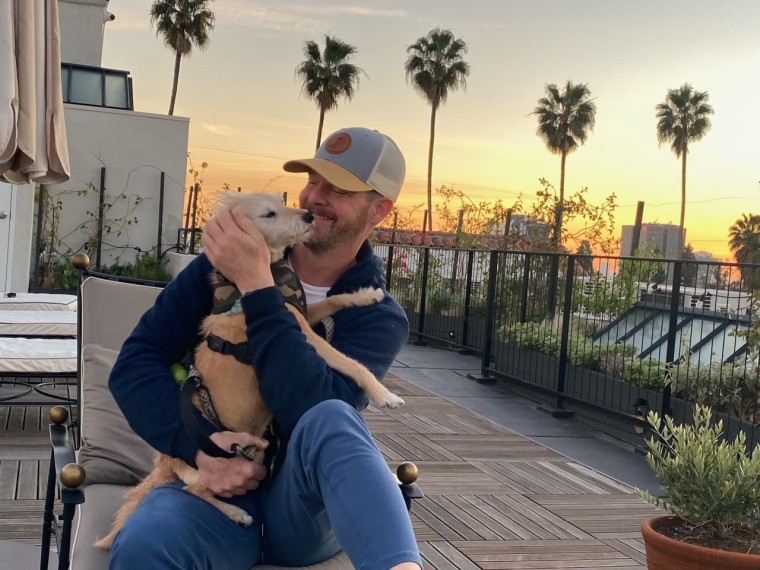
When I woke the next day and took a breath without struggling, I felt relief. Hearing the steady bump bump of my normal heartbeat on the monitor sounded amazing. A surge of emotions overwhelmed me. I felt grateful for the new heart beating in my chest, working better than my old one. I can’t express how appreciative I am to the anonymous donor family who gave their loved one’s heart so I could live.
Recovery felt slow and yet still miraculous. I started with taking two steps in the intensive care unit. Every day I took a few more steps until I went home. Sometimes it felt like I was making a lot of progress, but then would have to take two steps back and start over again. But I kept persevering.
At first, I had to visit doctors frequently for them to thread a thin needle through my neck to take out a tiny sample of heart tissue to make sure I wasn't rejecting my heart. As time passes, I undergo biopsies less frequently. I’m now 14 months out from my heart transplant and I feel great. I wear the scar on my chest as a badge of honor. It reminds me how close to death I was, how far I came and how grateful I am.
As told to Meghan Holohan. This interview has been edited and condensed.
